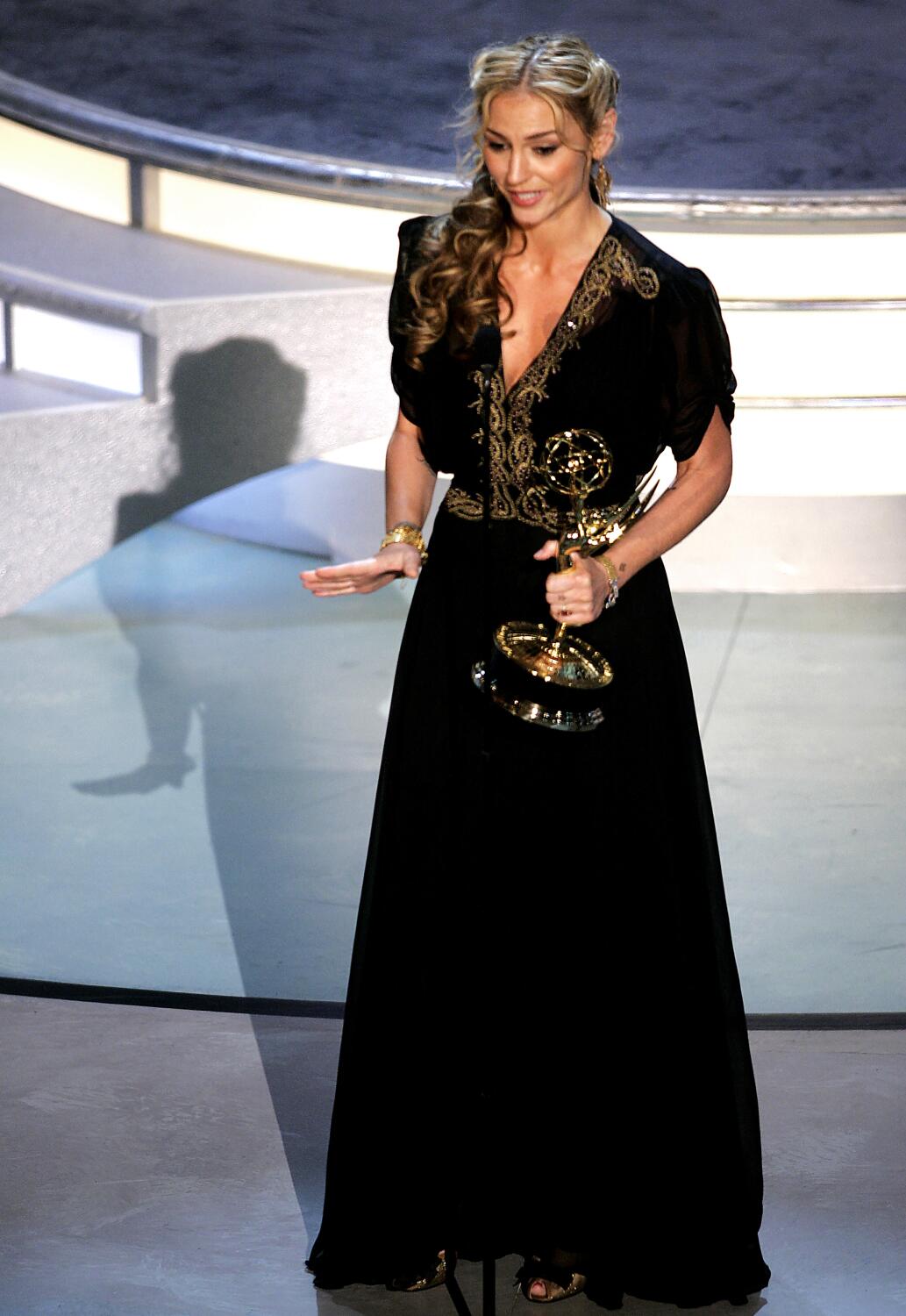
The supporting acting Emmy races typically deliver the most surprises. Nominees can range from EGOTs to actors getting the first recognition of their careers, to everything in between. And at the 56th annual Primetime Emmy awards, held Sept. 19, 2004, at the Shrine Auditorium in Los Angeles, the three supporting actress races proved that truth again, as all were awarded to first-timers — even as a future president handed an Emmy to a future gubernatorial candidate.
A win for ‘Sex’ and future politics
As Cynthia Nixon, who won for playing the Type A lawyer Miranda Hobbes on “Sex and the City” (HBO), pointed out in her speech, she was a showbiz veteran when she finally earned her first Emmy, following two nominations the previous two years for the same role. She’d go on to win a second in 2008 as a guest actress on “Law & Order: SVU.”
While Nixon’s co-star Sarah Jessica Parker also won that evening for lead actress in a comedy, her other two key co-stars Kim Cattrall and Kristin Davis went home empty-handed. Cattrall was ultimately nominated for her “Sex” role five times with no wins; this was Davis’ only nomination. Megan Mullally (“Will & Grace,” NBC) won in this category in 2000 and 2006, while Doris Roberts (“Everybody Loves Raymond,” CBS) won in the category in 2001 and earned an additional Emmy in 1983 for supporting actress in a drama. She died in 2016.
In an only-at-the-Emmys matchup, Nixon (who would go on to run for governor of New York), was presented with her Emmy by Simon Cowell and Donald Trump. After thanking her mother in the audience, she added, “I have been acting for 25 years, since I was 12, and I hope to act for another 50 — but I don’t think I will ever have another job like this one.” “Sex and the City” ended its run earlier in 2004.
Rookie nominee blanks six-time Emmy vet
Actors from “The Sopranos” owned the dramatic supporting categories that night; in addition to Michael Imperioli winning the supporting actor category, Drea de Matteo was astonished to find herself tapped as a winner for playing the doomed Adriana La Cerva. It was her first and only Emmy nomination. She was competing against fellow first-time nominee Robin Weigert (“Deadwood,” HBO); two-time nominee Janel Moloney (“The West Wing,” NBC); two-time winner Stockard Channing (“West Wing”); and six-time winner Tyne Daly (“Judging Amy,” CBS).
Accepting her award from Amber Tamblyn and Zach Braff, De Matteo was shell-shocked. “I have nothing to say,” she said. “There are so many people responsible for this, but if I even try to thank any of them right now, I might puke, choke, cry or die. You’ve all already seen me [as Adrianna] do that, so I’m just going to say thank you, go have 10 drinks and I’ll thank you all later.”
Talent so big it could inspire a quiche
“Angels in America” (HBO) was on such a roll at the Emmys this year it couldn’t have been too much of a surprise when Mary-Louise Parker, playing the hallucinating Harper Pitt, won her first Emmy for the part. The others in the category included Oscar and two-time Emmy winner Julie Andrews (“Eloise at Christmastime,” ABC); first-time nominee Anne Heche (“Gracie’s Choice,” Lifetime); six-time nominee Anjelica Huston (“Iron Jawed Angels,” HBO); and 18-time nominee Angela Lansbury (“The Blackwater Lightship,” CBS). Lansbury, who died in 2022, has the most nominations of any actor who never won an Emmy.
“My friend Larissa says that there are some roles that are so well-written that you practically start winning awards the day you get the part,” said Parker after accepting her award from William Petersen and Dennis Franz. “So I’d like to thank [Emmy-winning screenwriter] Tony Kushner for winning this award for me, and also to the mighty [Emmy-winning director] Mike Nichols, who could get a great performance out of a quiche, I swear to god.”


